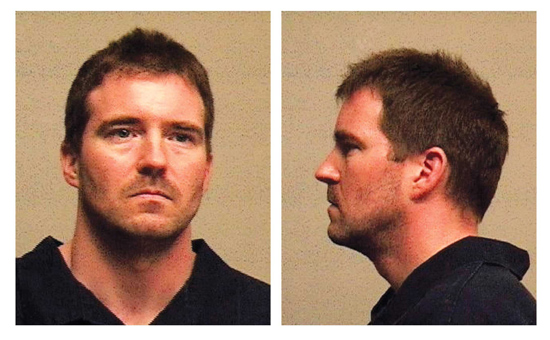Neo-Nazi Pleads Guilty in Attempted MLK Day Bombing
The white supremacist who last January planted a backpack bomb along the route of a Martin Luther King Jr. Day unity parade in Spokane, Wash., pleaded guilty on Sept. 7 in federal court, five days before his trial was set to begin.
The white supremacist who last January planted a backpack bomb along the route of a Martin Luther King Jr. Day unity parade in Spokane, Wash., pleaded guilty on Sept. 7 in federal court, five days before his trial was set to begin.
Concluding a complex investigation, FBI agents identified Kevin William Harpham, 37, through bomb component receipts, deleted photographs and a DNA match.
Harpham, a man with past ties to the neo-Nazi National Alliance and the racist Vanguard News Network, agreed to plead guilty to charges of attempted use of a weapon of mass destruction and using that weapon to carry out a hate crime.
Prosecutors called the bombing attempt an act of domestic terrorism by the unemployed electrician and former U.S. Army ordnance technician. “Mr. Harpham has told others he is a white supremacist and a white separatist,” Assistant U.S. Attorney Joseph Harrington, the lead prosecutor, told the court.
Sentencing was set for Nov. 30. Harpham could have been sentenced to life in prison if convicted on all four counts in the indictment. As part of a 16-page plea agreement, he faces a sentencing range of 27 to 32 years.
Harpham told the court he acted alone and that it took a month to build the bomb — which, once defused, became a windfall of physical evidence.
The improvised explosive device, which meets the federal definition of a “weapon of mass destruction,” was made out of six-inch-long steel pipe packed with 100 grams of black powder and surrounded by 128 fishing weights dipped in brodifacoum, an anticoagulant and active ingredient in rat poisons. A model rocket igniter was hooked to two 6-volt lantern batteries. The triggering system consisted of a remote car starter/alarm receiver that FBI agents confirmed Harpham purchased over the Internet.
Once the FBI crime lab identified the type of quarter-ounce fishing weights used in the device, agents contacted a Wal-Mart store in Colville, near Harpham’s home, and learned from computer records that the store “had an unusually high amount of the weights sold during a one-week period in November 2010.” FBI agents also retrieved records showing Harpham bought a digital camera on Nov. 15, the prosecutor said. On its memory card were traces of several dozen deleted photos taken during the MLK parade; they included pictures of Harpham and his intended victims.
Michael Ormsby, the U.S. attorney for Eastern Washington, said the case was solved through solid investigative work by the Inland Northwest Joint Terrorism Task Force and other police agencies. “There was no ‘aha’ moment,” he said. “It was a giant jigsaw puzzle, put together by the FBI and other police agencies.”
Harpham was just the third person to be charged with a federal hate crime under the Matthew Shepard and James Byrd Jr. Hate Crimes Prevention Act of 2009.


